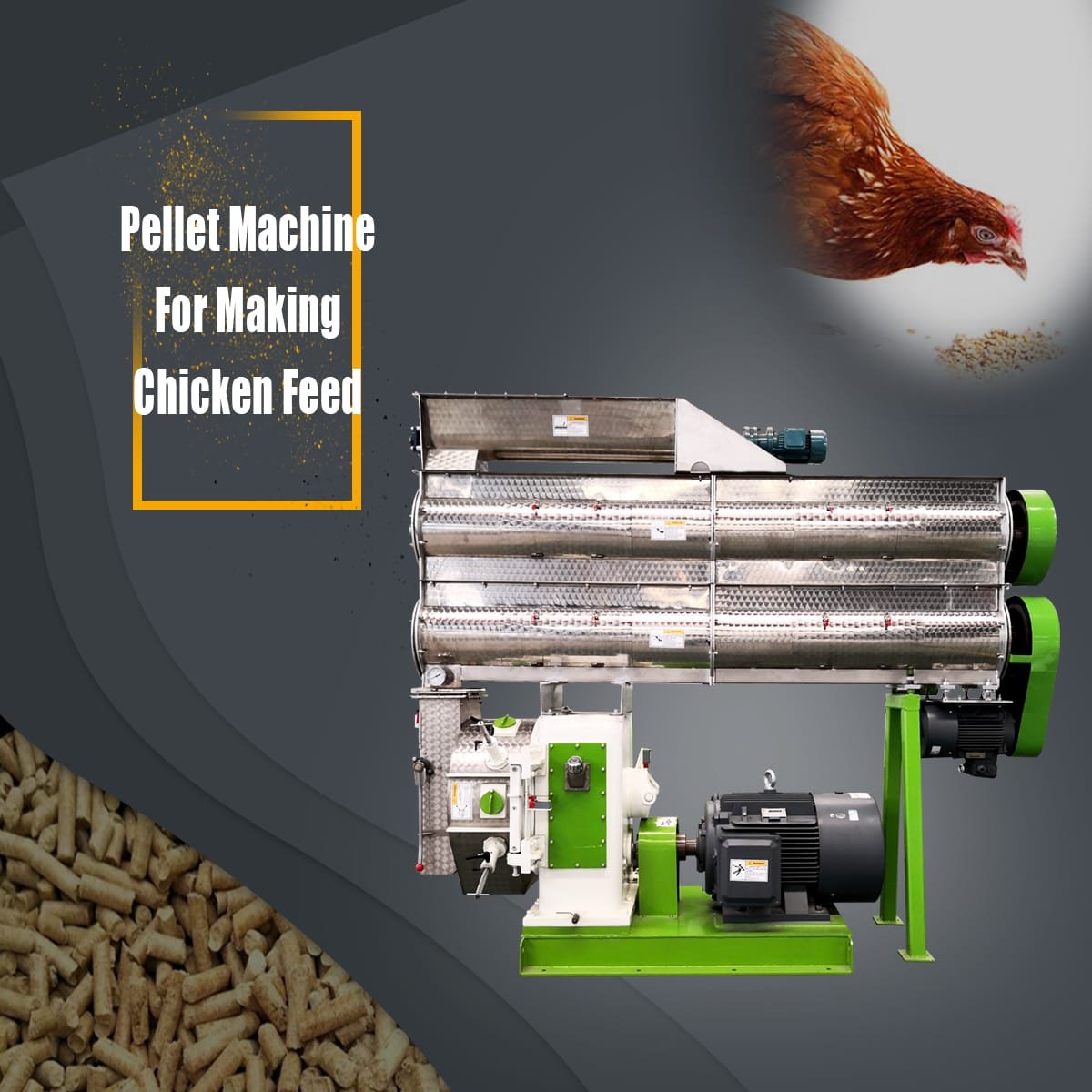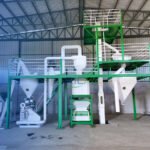Ring die pellet machines have gained widespread acclaim for their efficiency and versatility in converting diverse materials into pellets, making them indispensable across various industries. This article delves into the wide range of pellet types that can be processed using ring die pellet machines, underscoring their adaptability and significance in modern manufacturing processes.
Biomass Pellets A primary application of ring die pellet machines is in biomass pellet production:
- Wood Pellets: Derived from sawdust, wood chips, and other wood waste, these pellets are extensively used for heating and power generation.
- Agricultural Residue Pellets: Made from crop residues like straw, corn stalks, and rice husks, these pellets are gaining traction as renewable energy sources.
- Grass Pellets: Various grass types, including switchgrass and miscanthus, can be processed into pellets for bioenergy purposes.
- Bamboo Pellets: Fast-growing bamboo is efficiently pelletized, offering a sustainable alternative to wood pellets.
Animal Feed Pellets Ring die pellet machines are crucial in the animal feed industry:
- Poultry Feed: Formulated for chickens, turkeys, and other poultry with a balanced mix of grains, proteins, and additives.
- Cattle Feed: High-fiber pellets for ruminants, often incorporating forages and grains.
- Swine Feed: Nutrient-dense pellets tailored to the dietary needs of pigs at different growth stages.
- Aquaculture Feed: Specialized pellets for fish and shrimp farming, containing high protein levels and specific nutrients.
- Pet Food: Pellets designed for dogs, cats, and other domestic animals, meeting their nutritional requirements. (Related post:animal feed pellet making machine)
Industrial and Chemical Pellets Ring die pellet machines cater to various industrial applications:
- Plastic Pellets: Recycled plastics are pelletized for manufacturing new plastic products.
- Fertilizer Pellets: Organic and inorganic fertilizers are pelletized for easier application and storage.
- Mineral Pellets: Minerals and ores are pelletized for metallurgical processes or as additives in other industries.
- Activated Carbon Pellets: Pelletized for filtration and purification applications.
- Catalyst Pellets: Many industrial catalysts are pelletized to enhance their surface area and effectiveness.
Pharmaceutical and Nutraceutical Pellets In the pharmaceutical sector, ring die pellet machines produce:
- Medicinal Pellets: Certain medications are pelletized for controlled release or ease of administration.
- Herbal Supplement Pellets: Concentrated herbal extracts in pellet form for convenient consumption.
- Probiotic Pellets: Beneficial bacteria pelletized to improve stability and shelf life.
Environmental and Waste Management Pellets Ring die pellet machines contribute to environmental solutions:
- Sewage Sludge Pellets: Processed sewage sludge pelletized for use as fertilizer or fuel.
- Municipal Solid Waste (MSW) Pellets: Components of MSW pelletized as refuse-derived fuel.
- Absorbent Pellets: Materials like bentonite clay pelletized for environmental cleanup.
Factors Influencing Pellet Processing While highly versatile, several factors impact pellet production:
- Moisture Content: Optimal moisture levels vary (10-15% for biomass), crucial for effective pelletization.
- Particle Size: Materials need uniform grinding for ideal pellet size and characteristics.
- Material Composition: Binding properties affect pellet stability; some materials may require additives.
- Die Specifications: Hole size and die thickness influence pellet quality and size.
- Temperature and Pressure: Variations required for different materials to form pellets effectively.
Advantages of Ring Die Pellet Machines The versatility of ring die pellet machines offers several advantages:
- Versatility: One machine handles multiple applications, enhancing production flexibility.
- Efficiency: High throughput and continuous operation support large-scale production.
- Uniformity: Uniform size and density ensure consistent pellet quality.
- Value Addition: Pelletizing enhances material handling, storage, and utilization.
- Waste Reduction: Converts various wastes into usable pellets, supporting circular economy initiatives.
Conclusion Ring die pellet machines exemplify versatility by processing a broad spectrum of materials into pellets essential across industries. From biomass and animal feed to industrial chemicals and pharmaceuticals, these machines drive modern manufacturing and waste management practices. Their adaptability to diverse materials and end-products underscores their pivotal role in sustainable production, energy generation, and resource utilization.
As technology advances and new materials emerge, the capabilities of ring die pellet machines will likely expand further. This ongoing evolution emphasizes their critical role in addressing present and future challenges in production efficiency, energy sustainability, and resource conservation. The versatility of ring die pellet machines not only enhances manufacturing efficiency but also fosters innovation in material processing and product development across diverse sectors.


